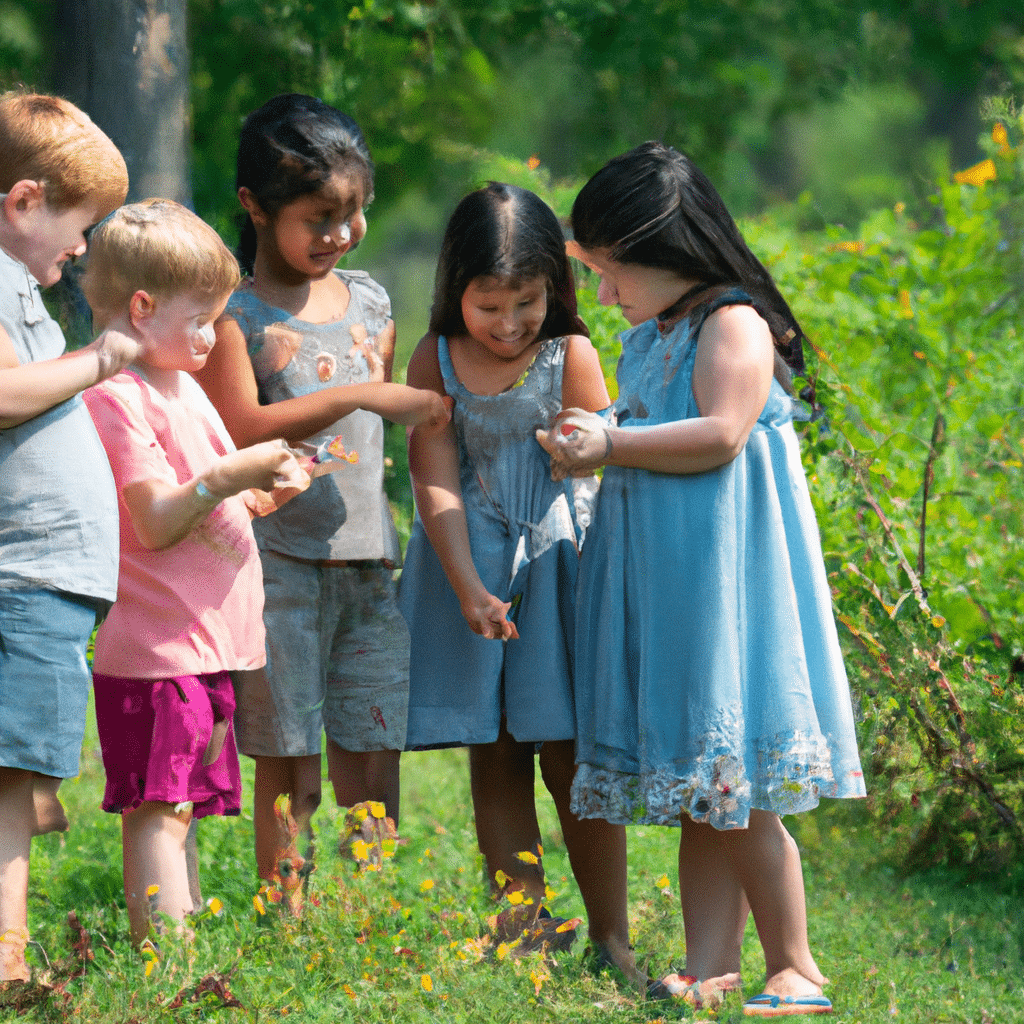Welcome to our comprehensive guide on fun and educational farming activities for kids! Engaging children in farming-related activities not only sparks their curiosity about the natural world but also teaches them valuable skills and instills a sense of responsibility towards the environment. In this article, we will explore a variety of hands-on farming activities that are both enjoyable and educational for kids of all ages. So, let’s dig in and discover the joy of nurturing a green thumb!

1. Planting a Vegetable Garden
One of the most rewarding and educational farming activities for kids is planting a vegetable garden. Start by selecting a suitable spot in your backyard or even using containers for limited spaces. Involve your child in choosing the vegetable varieties they would like to grow, such as tomatoes, carrots, or cucumbers. Teach them about different soil types, sunlight requirements, and watering techniques. Allow them to take charge of planting the seeds or seedlings, and guide them on proper care and maintenance.
Encourage your child to observe the growth of their plants and explain the importance of watering, weeding, and protecting the garden from pests. This hands-on experience will not only teach them about plant life cycles but also provide them with a sense of accomplishment when they harvest their own fresh vegetables.
2. Caring for Farm Animals
If you have access to a farm or a petting zoo, taking your kids to interact with farm animals can be an enriching experience. Children can learn about different farm animals, their habitats, and their roles in agriculture. Encourage them to feed and groom the animals under supervision, teaching them about animal care and the importance of treating animals with kindness and respect.
Furthermore, consider introducing your child to the concept of responsible animal husbandry. Teach them about the daily tasks involved in caring for farm animals, such as cleaning their living spaces, providing fresh water and food, and ensuring their overall well-being. This activity not only fosters empathy but also imparts valuable knowledge about animal welfare.
3. Composting and Recycling
Teaching kids about the importance of composting and recycling is crucial for instilling eco-consciousness from an early age. Explain to them how composting works, the benefits of organic waste decomposition, and how it enriches the soil for healthier plant growth. Encourage your child to collect kitchen scraps, yard waste, and other organic materials for composting.
Additionally, educate your child about the significance of recycling and reducing waste. Teach them how to sort recyclables, such as paper, plastic, and glass, and encourage them to participate in recycling programs in your community. By actively involving them in these sustainable practices, you are nurturing their environmental awareness and encouraging responsible consumption.
4. Beekeeping and Pollination
Introduce your child to the fascinating world of bees and the vital role they play in pollination. Beekeeping can be a fantastic educational activity that teaches kids about the importance of bees in our ecosystem and the process of honey production. Depending on your location and local regulations, consider setting up a small beehive or visiting a local beekeeper.
Guide your child in learning about the different types of bees, their life cycle, and the inner workings of a beehive. Explain the concept of pollination and how it helps plants reproduce. By understanding the symbiotic relationship between bees and flowers, children gain a deeper appreciation for the natural world and develop a desire to protect it.
5. Farm-to-Table Cooking
Incorporating farm-to-table cooking into your child’s routine can be a fun and educational way to connect them with the food they consume. Take your child to farmers’ markets or local farms where they can select fresh ingredients for cooking together. Teach them about the nutritional value of different foods and the benefits of consuming locally grown produce.
Involve your child in meal preparation, guiding them on using fresh ingredients to create delicious and healthy dishes. This activity not only improves their culinary skills but also enhances their understanding of food sources and the journey from farm to table. It can also encourage healthier eating habits and a greater appreciation for the effort that goes into producing our meals.
6. Farming Simulations and Educational Games
In this digital age, there are various farming simulations and educational games available that can provide a virtual farming experience for kids. These games allow children to learn about crop cultivation, animal care, and the overall management of a farm. They can explore different scenarios and make decisions that impact their virtual farm.
Engaging your child in these games not only entertains them but also imparts valuable knowledge about farming practices. They can learn about crop rotation, pest control, and the importance of sustainable farming methods. Additionally, these simulations can spark their curiosity and encourage further exploration of the farming world.
7. Engaging with Agricultural Organizations and Events
Connecting with local agricultural organizations and attending farming events in your community can provide your child with a broader perspective on farming and its impact on society. Explore opportunities to visit educational farms, agricultural fairs, or participate in workshops specifically designed for children.
By engaging with these organizations and events, your child can meet farmers, learn about different farming techniques, and witness the diverse aspects of agriculture. They may even have the chance to participate in hands-on activities, such as milking cows, shearing sheep, or learning about crop irrigation systems. These experiences will deepen their understanding of farming and create lasting memories.
Conclusion
Congratulations on completing our guide to fun and educational farming activities for kids! By involving your child in these hands-on experiences, you are nurturing their love for nature, fostering a sense of responsibility towards the environment, and imparting valuable knowledge about the world of farming. Remember, engaging activities like planting a vegetable garden, caring for farm animals, composting, beekeeping, farm-to-table cooking, farming simulations, and connecting with agricultural organizations can inspire and educate your child while creating unforgettable moments. So, let’s unleash their green thumb and embark on an exciting farming adventure together!



